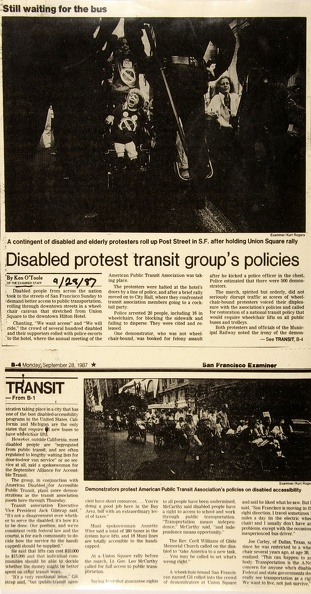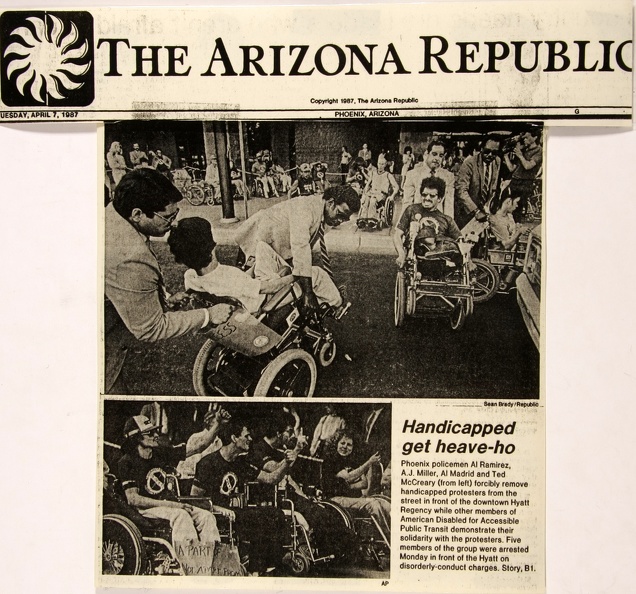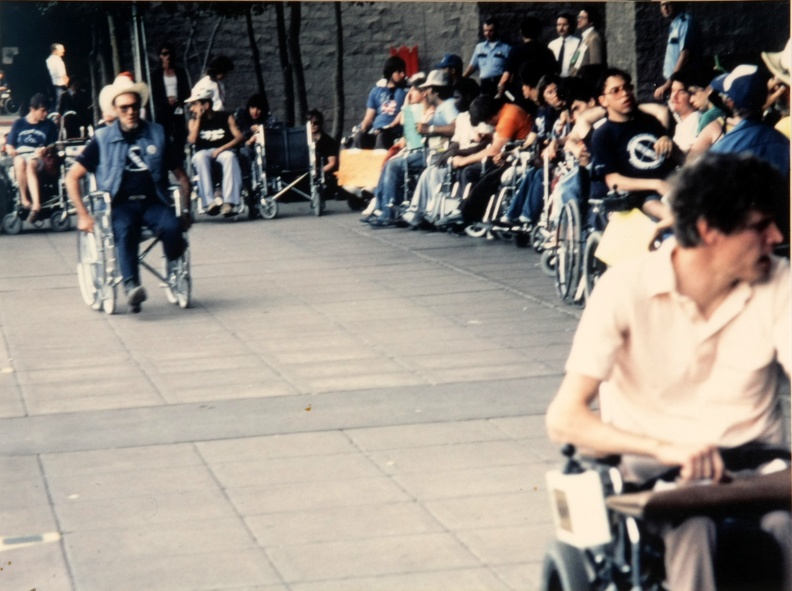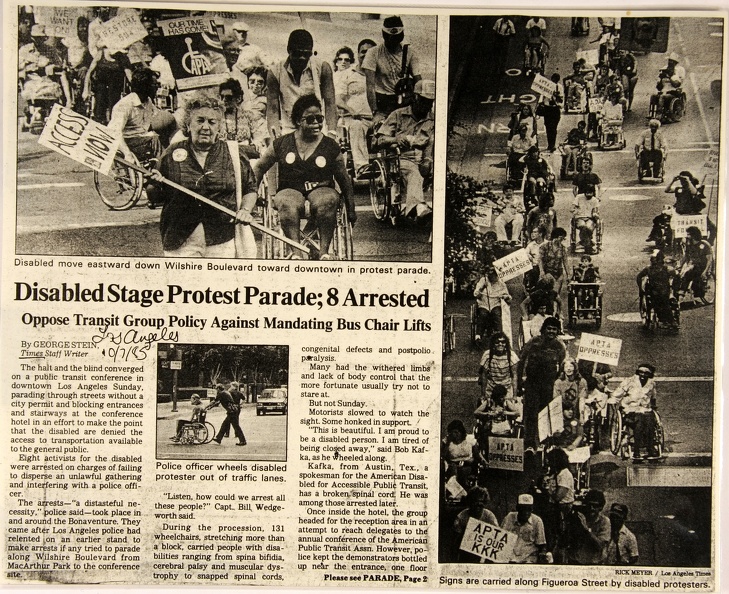- JezikAfrikaans Argentina AzÉrbaycanca
á¥áá áá£áá Äesky Ãslenska
áá¶áá¶ááááá à¤à¥à¤à¤à¤£à¥ বাà¦à¦²à¦¾
தமிழ௠à²à²¨à³à²¨à²¡ ภาษาà¹à¸à¸¢
ä¸æ (ç¹é«) ä¸æ (é¦æ¸¯) Bahasa Indonesia
Brasil Brezhoneg CatalÃ
ç®ä½ä¸æ Dansk Deutsch
Dhivehi English English
English Español Esperanto
Estonian Finnish Français
Français Gaeilge Galego
Hrvatski Italiano Îλληνικά
íêµì´ LatvieÅ¡u Lëtzebuergesch
Lietuviu Magyar Malay
Nederlands Norwegian nynorsk Norwegian
Polski Português RomânÄ
Slovenšcina Slovensky Srpski
Svenska Türkçe Tiếng Viá»t
Ù¾Ø§Ø±Ø³Û æ¥æ¬èª ÐÑлгаÑÑки
ÐакедонÑки Ðонгол Ð ÑÑÑкий
СÑпÑки УкÑаÑнÑÑка ×¢×ר×ת
اÙعربÙØ© اÙعربÙØ©
Naslovnica / Skupine / Tag Gil Casarez 4
Pogledaj:
Mjesečni popis
Nadnevak izrade / 2013 / Srpanj

 ADAPT (342)
ADAPT (342)
San Francisco Examiner 9/28/87 Still waiting for the bus Photo by Examiner/Kurt Rogers: A row of policemen in dark uniforms facing away from the camera make most of the photo black. At their sides you can see night sticks and their hands on their hips. Between them you can see a very young (about 6 years old) Jennifer Keelan mouth open in a loud chant and behind her, barely visible is her mother Cindy. To the right Diane Coleman is framed by two other policemen, and between them mostly hidden by the officer's legs, is Bob Kafka. Caption reads: A contingent of disabled and elderly protesters roll up Post Street in S.F. after holding Union Square rally. Headline: Disabled protest transit group’s policies By Ken O'Toole of the Examiner staff Disabled people from across the nation took to the streets of San Francisco Sunday to demand better access to public transportation, rolling through downtown streets in a wheelchair caravan that stretched from Union Square to the downtown Hilton Hotel. Chanting, “We want access” and "We will ride," the crowd of several hundred disabled and their supporters rolled with police escorts to the hotel, where the annual meeting of the American Public Transit Association was taking place. The protesters were halted at the hotel's doors by a line of police, and after a brief rally moved on to City Hall, where they confronted transit association members going to a cocktail party. Police arrested 20 people, including 16 in wheelchairs, for blocking the sidewalk and failing to disperse. They were cited and released. One demonstrator. who was not wheelchair-bound, was booked for felony assault after he kicked a police officer in the chest. Police estimated that there were 500 demonstrators. The march, spirited but orderly, did not seriously disrupt traffic as scores of wheelchair-bound protesters voiced their displeasure with the associations policies and called for restoration of a national transit policy that would require wheelchair lifts on all public buses and trolleys. Both protesters and officials of the Municipal Railway noted the irony of the demonstration taking place in a city that has one of the best disabled-accessibility programs in the United States. California and Michigan are the only states that require all new buses to have wheelchair lifts. However, outside California, most disabled people are "segregated from public transit, and are often regulated to lengthy waiting lists for door-to-door van service" or no service at all, said a spokeswoman for the September Alliance for Accessible Transit. The group, in conjunction with American Disabled for Accessible Public Transit, plans more demonstrations as the transit association meets here through Thursday. Transit association Executive Vice President Jack Gilstrap said, “it's not a disagreement over whether we serve the disabled; it's how its to be done. Our position, and we're consistent with federal law and the courts, is for each community to decide how the service (to the handicapped) should be supplied." He said that lifts can cost $10,000 to $15,000 and that individual communities should be able to decide whether the money might be better spent on other transit woes. "lt's a very emotional issue," Gilstrap said, "but (public-transit agencies) have short resources. You're doing a good job here in the Bay Area, but with an extraordinary level of taxes." Muni spokeswoman Annette Wire said a total of 280 buses In the system have lifts, and 16 Muni lines are totally accessible to the handicapped. At a Union Square rally before the march, Lt. Gov. Leo McCarthy called for full access to public transportation. Saying laws that guarantee rights to all people have been undermined, McCarthy said disabled people have a right to access to school and work through public transportation. "Transportation means independence," McCarthy said, “and independence means opportunity." The Rev. Cecil Williams of Glide Memorial Church called on the disabled to take America to a new task... You may be called to set what's wrong right." A wheelchair-bound San Franciscan named Gill rolled into the crowd of demonstrators at Union Square and said he liked what he saw. But he said, “San Francisco is moving in the right direction. I travel sometimes miles a day (in the electric wheelchair) and I usually don‘! have any problems. except with the occasional inexperienced bus driver." Joe Carley, of Dallas, Texas, said since he was restricted to a wheelchair several years ago, at age 38, I realized: ‘This can happen to at anybody. Transportation is the A-Number 1 concern for anyone who's disabled. Federal and state governments don't really see transportation as a right. We want to live, not just survive." Photo by Examiner/Kurt Rogers: A really large group of people, many in wheelchairs head down a street. Caption reads: Demonstrators protest American Public Transit Association's policies on disabled accessibility. ADAPT (336)
ADAPT (336)
A sun logo The Arizona Republic copyright 1987 The Arizona Republic Tuesday, April 7, 1987, Phoenix Arizona 2 PHOTOs. Top photo by Sean Brady/Republic: In the foreground two plain clothes police men tip someone in a power wheelchair back on their back wheels. One is in the back holding the push handles and looking careful but determined. The other is leaning forward reaching for something around the footrests, perhaps the breaks. The person in the wheelchair has their hands in their lap by their side. To their left another plain clothes police man is tipping another power wheelchair user [George Roberts] onto his back wheels. George is wearing mirror sun glasses and grimacing, his feet crossed as his legs spam. To George's left another plain clothes officer is holding the handles of a woman [Loretta DuFriend] in a power chair and watching his comrades with amazed expression. Behind these two is a TV cameraman filming. On the sidewalk behind all this other ADAPT protesters sit; some are inside the area the police has taped off, others are just outside the tape. Lower photo by AP: Four ADAPT protesters [Lonnie Johnson, Rand Metcalfe, George Roberts and Stephanie Thomas] sit in a row, slightly smiling and holding out one arm with a fist and their thumb or finger extended. Lonnie has a sign that reads "A PART OF, NOT APART FROM" All wear their dark ADAPT T-shirts with the no steps logo. Handicapped get heave-ho Phoenix policemen AI Ramirez, A.J. Miller, Al Madrid and Ted McCreary (from left) forcibly remove handicapped protesters from the street in front of the downtown Hyatt Regency while other members of American Disabled tor Accessible Public Transit demonstrate their solidarity with the protesters. Five members of the group were arrested Monday in front of the Hyatt on disorderly-conduct charges. Story, B1. ADAPT (333)
ADAPT (333)
Photo Tom Olin: A large group of ADAPT protesters line three sides of a open square. A man in a cowboy hat, denim vest and manual wheelchair (Joe Carle) rolls across the middle of the open area. In the foreground a man in a motorized wheelchair (Mark Johnson) talks with someone just out of the picture. In the group around the edges are (left to right): Loretta Dufriend, Gil Casarez, Tom Pugh, Bernard Baker, Renata Conrad, Alfredo Aguirre?, and Greg Buchannan, among others. ADAPT (228)
ADAPT (228)
Los Angeles Times 10/7/85 [This article continues on ADAPT 227 but the entire text of the story is included here for easier reading,] 3 photos by Rick Meyer/Los Angles Times: photo 1 is of a section of the march with men and women of various ethnic backgrounds and disabilities walking, rolling and pushing others' chairs. There is a sense of energy in the group and many wear buttons and carry signs reading "Access Now", "Restore 504", and "Our Time has Come -- CAPH." Caption reads: Disabled move eastward down Wilshire Boulevard toward downtown in protest parade. Photo 2 is another picture of the march, taken from above. The crowd is loosely organized, many in the front are looking up and smiling. There are children with disabilities, people in neckties, people with headbands. In the crowd you can see Bill Bolte, Bob Kafka, Gil Casarez among many others. Some carry signs on sticks reading "APTA oppresses", as well as "Transit for All" and one about ADAPT. Caption reads: Signs are carried along Figueroa Street by disabled protesters. Photo 3 (much smaller) is of a police officer pushing a man in a manual wheelchair (Jim Parker) to the side of the street while another officer seems to be stopping a car. Caption reads: Police officer wheels disabled protester out of traffic lanes. [Headline] Disabled Stage Protest Parade; 8 Arrested Oppose Transit Group Policy Against Mandating Bus Chair Lifts By GEORGE STEIN Times Staff Writer The halt and the blind converged on a public transit conference in downtown Los Angeles Sunday, parading through streets without a city permit and blocking entrances and stairways at the conference hotel in an effort to make the point that the disabled are denied the access to transportation available to the general public. Eight activists for the disabled were arrested on charges of failing to disperse an unlawful gathering and intefering with a police officer. The arrests —“a distasteful necessity," police said -- took place in and around the Bonaventure. They came after Los Angeles police had relented to an earlier stand to make arrests if any tried to parade along Wilshire Boulevard from MacArthur Park to the conference. “Listen, how could we arrest all these people?" Capt. Bill Wedgeworth said. During the procession, 131 wheelchairs, stretching more than a block, carried people with disabilities ranging from spina bifidia, cerebral palsy and muscular dystrophy to snapped spinal cords, congenital defects and postpolio paralysis. Many had the withered limbs and lack of body control that the more fortunate usually try not to stare at. But not Sunday. Motorists slowed to watch the sight. Some honked in support. “This is beautiful. I am proud to be a disabled person. I am tired of being closed away," said Bob Kafka, as he wheeled along. Kafka, from Austin, Tex., a spokesman for the American Disabled for Accessible Public Transit, has a broken spinal cord. He was among those arrested later. Once inside the hotel, the group headed for the reception area in an attempt to reach delegates to the annual conference of the American Public Transit Assn. However, police kept the demonstrators bottled up near the entrance, one floor above the main reception area. "Access now! Access now!" the demonstrators shouted. The crowd, which came from a spectrum of disabled activist groups in and out of California, targeted the transit convention because the organization opposes a national policy mandating wheelchair lifts on buses. The American Public Transit Assn.'s position is to let each transit agency deal with access for the disabled as a local decision. In Los Angeles, the Southern California Rapid Transit District, with 2,445 buses, has wheelchair lifts on 1,691 and is retrofitting another 200. The RTD hopes to have lifts on all buses in five years, which, according to a spokesman, would probably make it the first major urban bus system to be so equipped. After the demonstrators blocked hotel escalator wells for almost an hour, Wedgeworth told them their gathering was illegal. The actual arrests were an odd orchestration of defiance and cooperation. Escalator Well George Florom, a member of the disabled group from Colorado Springs, Colo., began thrashing as police tried to remove him from an escalator well. It took three officers to subdue him. “He began kicking and trying to bite me, so he had to go," Lt Ken Colby explained. One of the demonstrators grabbed an officer's gun, police said. Florom, lay quietly once handcuffed, and police gently placed him in his wheelchair and wheeled him to a lift-equipped van that had been arranged for the occasion. Trained medical personnel also were on hand. Edith Harris of Hartford, Conn., had earlier failed in an attempt to get arrested, tearing up American Disabled for Accessible Public Transit literature and throwing it on Figueroa Street. "Arrest me,“ she screamed to ‘no avail from her motorized wheelchair. The police only moved her to the sidewalk, and an officer went back to [unreadable] trash. Her wish was granted later, after she tried to herself down one of the blocked escalators. Then she calmed down, gratefully accepting a drink of water from a police officer, while waiting for a stretcher to arrive. Unhandcuffed, sitting upright, she was placed in the van. Her wheelchair was carefully handed in after her. Taken to Station The arrestees were taken to the Central Division station for processing. The seven men were later booked at County Jail, where bail was set at $500. Harris was booked at Sybil Brand Institute. Some police worried that the department's image would suffer from Sunday's action. “We look bad, no matter what we do," Sgt. Bill Tiffany said. After the arrests, a spokesman said, “It must be stressed that the Los Angeles Police Department has repeatedly tried to meet with demonstration leaders in the attempt to provide legal alternatives to accomplish their objectives and avoid the distasteful necessity of arresting handicapped citizens.” The police were not alone in their concern. Five months before the convention, according to Mark Johnson, 34, of Westminster, Colo., an organizer for the disabled group, RTD board member Jack Day flew to Denver to try to talk the organization out of civil disobedience. Negotiations foundered on an demand by the disabled group that the RTD introduce and support a proposal that the American Public Transit Assn. reverse its stand and back mandatory wheelchair lifts on buses, Johnson said. He said the disabled activists will be in town through Wednesday. The American Public Transit Assn. is a lobbying and policy organization. The five-day convention began Sunday.